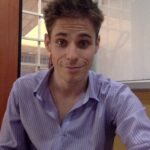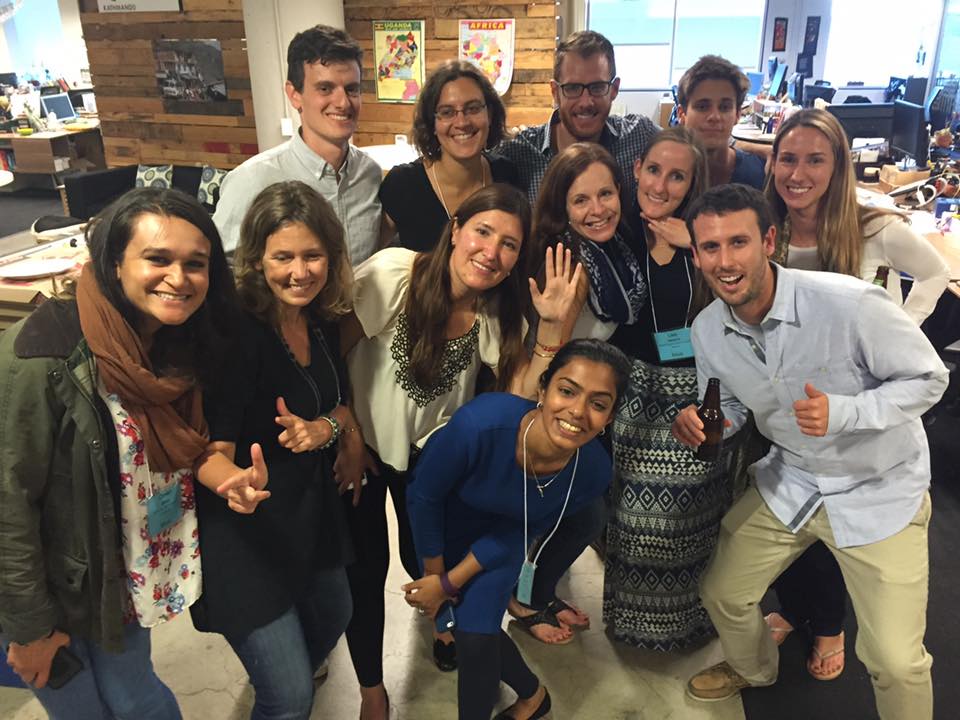
The Kiva Fellowship is a full-time, 6-12 month opportunity for socially engaged citizens from around the world to work with partner organizations in more than 60 developing countries around the world. Over the course of their program, Fellows learn to build capacity, measure impact, and learn about microfinance and social enterprise wherever their program takes them.
After college, software engineer William Putnam participated in the Kiva Fellowship. As a Kiva Fellow, William grew BRAC Liberia’s KIVA program from no loans after the Ebola Crisis to $90,000 monthly, discussed financing options for small businesses as a panelist at the Liberian Ministry of Commerce’s MSME Conference, collaborated with Accountability Television and the TEDx Monrovia Conference to promote microfinance, and provided training to Strathmore University in Kenya as part of Kiva’s student loan program while sharing insights through regular blog updates about his experiences and developments in Liberia and East Africa. We interviewed William to learn about his experience in the Kiva Fellowship and how it prepared him for his future career and success.
Can you tell us about your background and professional journey? What led you to the Kiva Fellowship?
I studied cognitive neuroscience through an interdisciplinary major called Philosophy-Neuroscience-Psychology in college. I was planning on applying to medical school, but I needed to increase my science GPA and was worried about taking on so much debt.
Previously, I had applied to work on the Human Connectome Project doing functional magnetic resonance imaging (fMRI) research, but I didn’t get the job. I then considered working in health care consulting, but I ended up following a couple of friends to teach English in southeast Thailand for a year. After my year of teaching English ended, I got a job at an education startup in Bangkok called Top Scholars, writing curricula for the SAT, GMAT, and SSAT. I had worked as an SAT tutor during college, so it was definitely a matter of being in the right place at the right time. I worked there for over two years. It was at Top Scholars that I learned about the concept of social entrepreneurship and about Kiva.
After my time at Top Scholars, I planned to use my savings from working there to attend a post-baccalaureate pre-med program at Washington University in St. Louis to improve my science GPA, but I took a risk to apply for the Kiva Fellowship and decided to defer the post-bac for a year to take advantage of this opportunity.
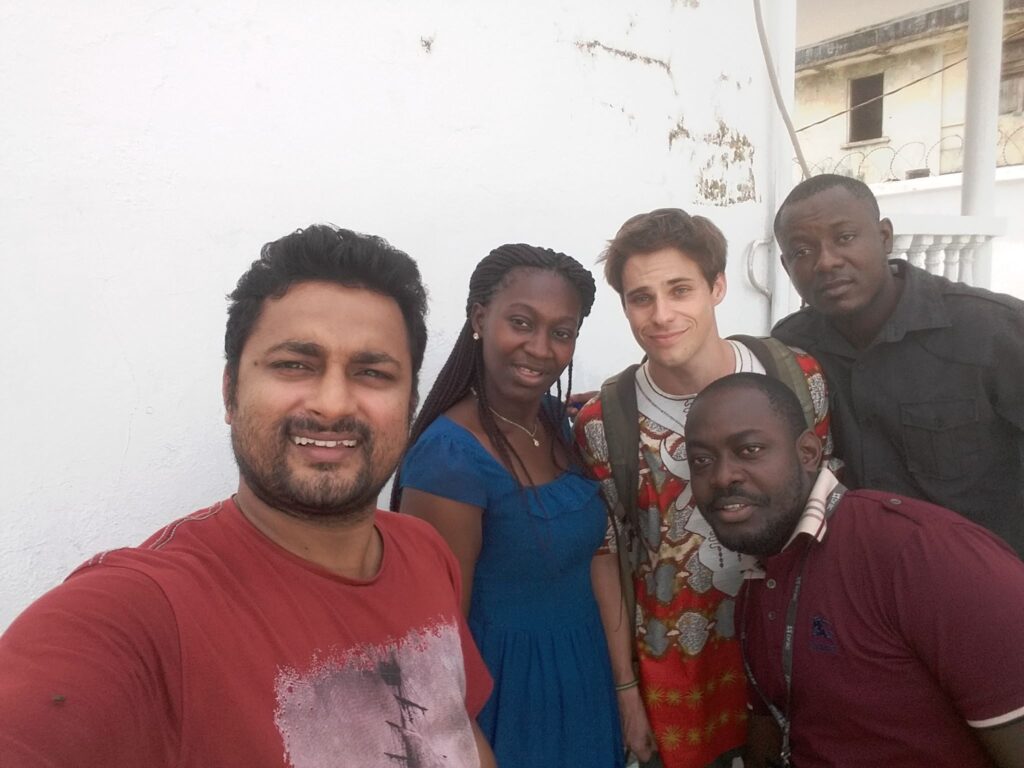
What was an average week like as a Kiva Fellow? And how did it impact your career?
My schedule varied depending on which Kiva partner I was working with. While working with BRAC Liberia, I had a lot of autonomy to set up the program from scratch and to look for new partnerships in Liberia. This led to a lot of weekend work and networking. I even started running with the Hash House Harriers—a weekly running group—to find potential new Kiva partnerships. In Nairobi and Uganda, the work was much more than a 9-5, excluding when we needed to travel to conduct borrower verifications.
With regard to advancing my career, I don’t believe that I would have considered a career in technology if I had not attended Nairobi Tech Week and met Kenyan entrepreneurs working so hard to solve social problems through tech entrepreneurship. A whole new world of possibility opened up for me.
What are some things you learned from traveling abroad?
The Kiva Fellowship gave me a better understanding of the world around me and allowed me to learn about the power of technology to catalyze innovation. I attended Nairobi Tech Week when I was in Nairobi, which is what pushed me to attend a coding boot camp and become a software engineer.
Seeing just how hardworking and energized people were also helped me get rid of much of my complacency and cynicism. Liberia’s inhabitants have been through hell, but they are all working hard to improve things. It made me more acutely aware of my own privilege. I will never forget seeing the first TEDx Conference in Monrovia, Liberia. I worked as a volunteer, and the experience was exhilarating. Despite two civil wars and the recent Ebola Crisis, Liberians’ resilience never ended.
One of my favorite things about living in Liberia was that I had to create my own fun, and I became really close to the people I lived, worked, and ran with. Since there was no internet, it was much easier to truly live in the moment.
Working on the student loan program in Nairobi allowed students from Turkana province, Kenya, to attend Strathmore University in Nairobi, catapulting many of these students from poverty to the urban middle class. Without the crowdfunding nature of Kiva loans (which were only possible through technology), these students would have been unable to take on five-figure USD loans for school. When I have moments of cynicism about working in technology, it helps me to remember how technology can be a force for good in the world and how the Kiva Fellowship inspired me on this journey.
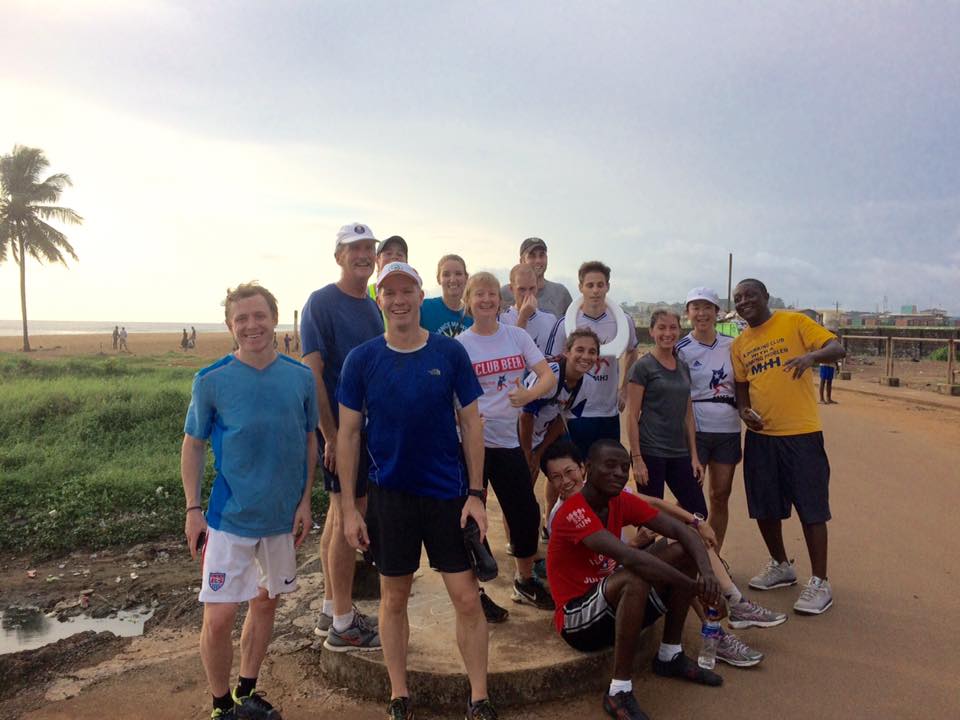
What would you tell aspiring students who are interested in pursuing such opportunities for themselves?
The main advice I would give is just to apply. I was younger and, in many ways, less qualified (no management consulting background or MBA) than many other Kiva Fellows in my cohort, but the program still took a chance on me. I did not apply for the Global Health Corps fellowship or the Peace Corps after college because I thought I was not qualified for either, and I deeply regret not giving them a shot.
I also would say to look into funding opportunities. I had saved for two and a half years at Top Scholars to self-fund my program, but I know things would have been less stressful if I had tried a GoFundMe or been willing to do remote SAT tutoring on the side.
Finally, don’t be afraid to explore and try new things. I did not know what to make of my wacky running group (the Hash House Harriers) at first, but it ended up being one of my favorite experiences. Take advantage of the chance to eat new foods and meet people you otherwise wouldn’t. The risk of doing something embarrassing or getting sick from eating street food is well worth it, considering what you’ll gain from the experience.
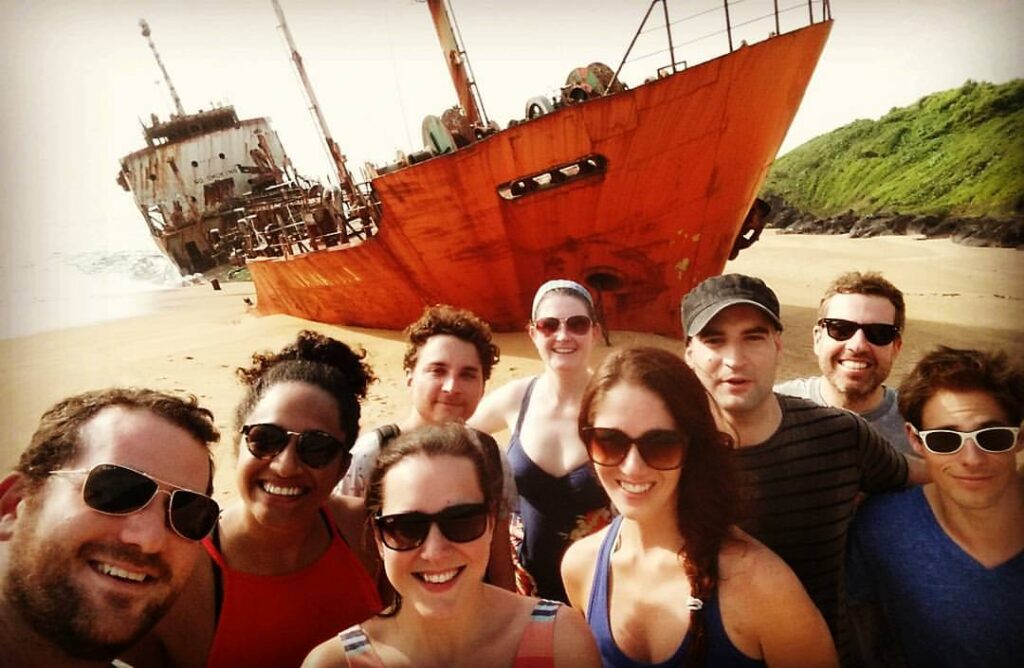
And finally, where do you see yourself going next?
I’m actually in the middle of figuring that out. I could see myself staying in my current role or attempting to merge clinical work and technology. I’m currently at Meta Business Suite and super happy with my team. Some of my work now even benefits small business owners in Liberia, so things have come full circle. I’m also on the alumni board of a program called YCore (a non-profit program that pairs young professionals with Bay Area non-profits and which I’ve participated in since 2019).
My goal to work in global health never changed; the Kiva Fellowship showed me new ways of doing that. It was the first time I’d encountered people approaching social entrepreneurship through technology. Without participating in the Kiva Fellowship, I would not have developed an interest in working on problems using technology.
If the Kiva Fellowship taught me how technology can solve social problems, my mom getting sick and the COVID pandemic reminded me how much I long to work in the clinical space. I’ll have to figure out with my fiancee how to make it work, but I’ve been considering applying to medical school in the next couple of years. I aim to do clinical work in infectious diseases and use software models to map disease transmission, merging my interests in health and technology.
Interested in other public service fellowshis? Sign up to discover more than 2,600 professional and academic fellowships in the ProFellow database!
